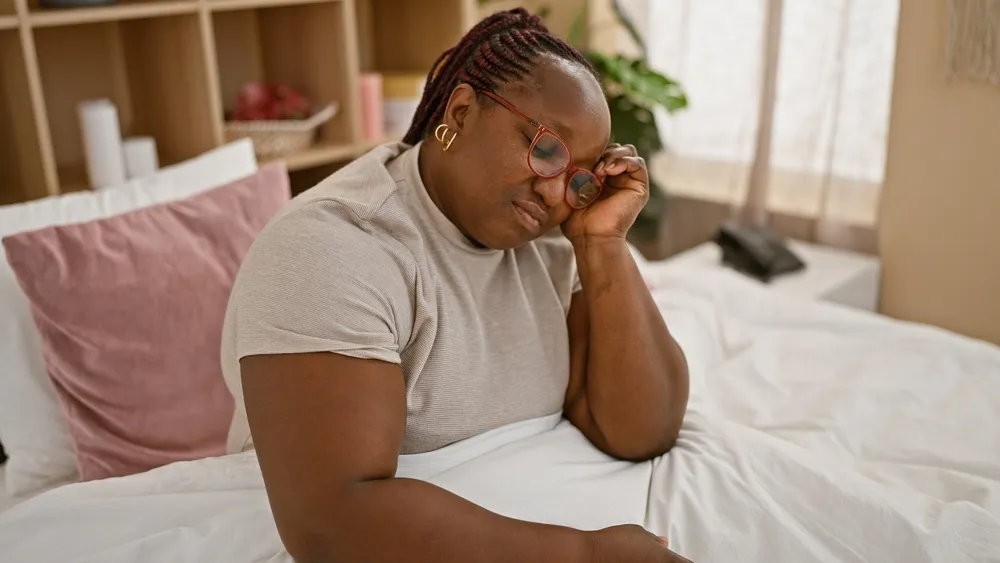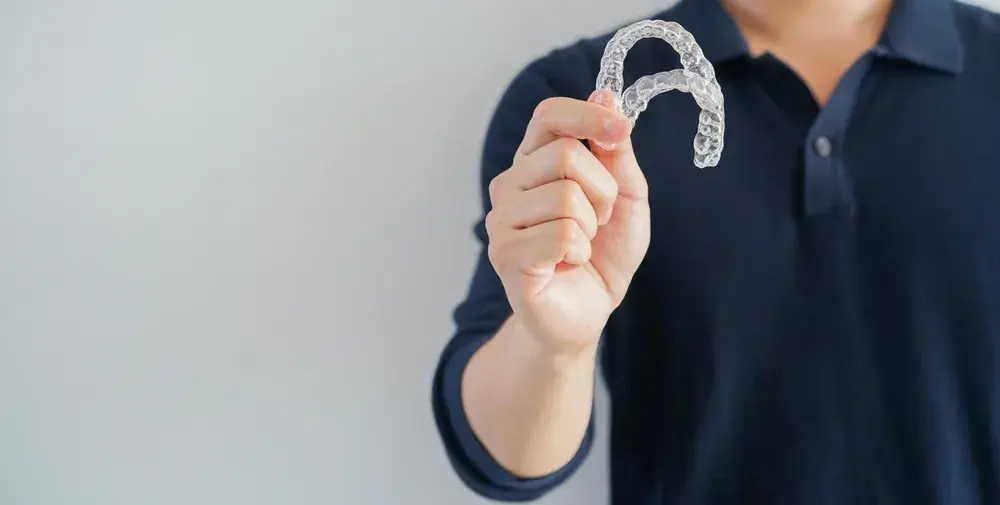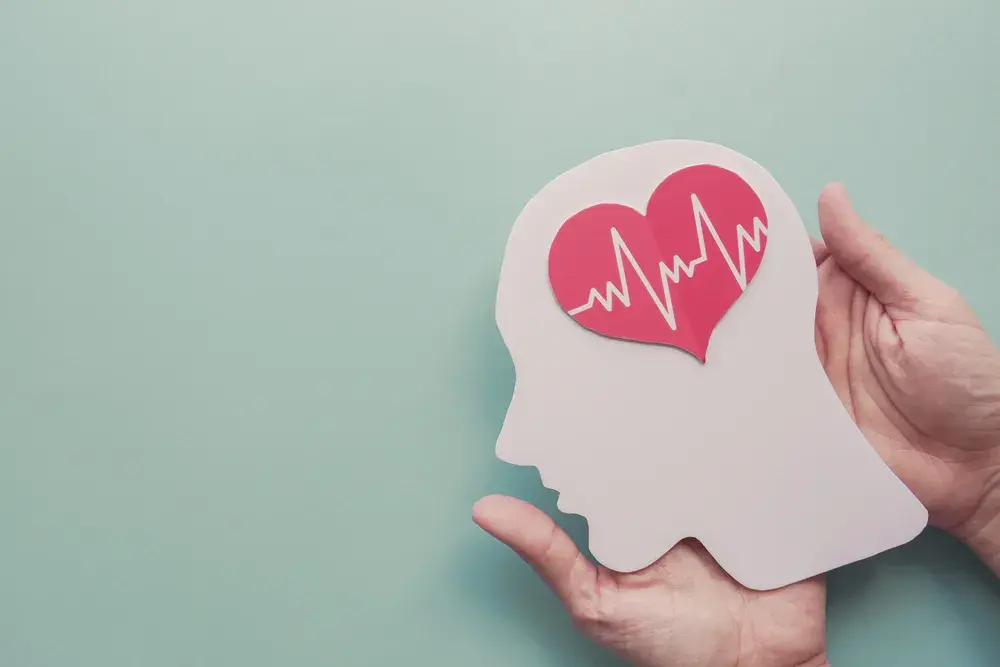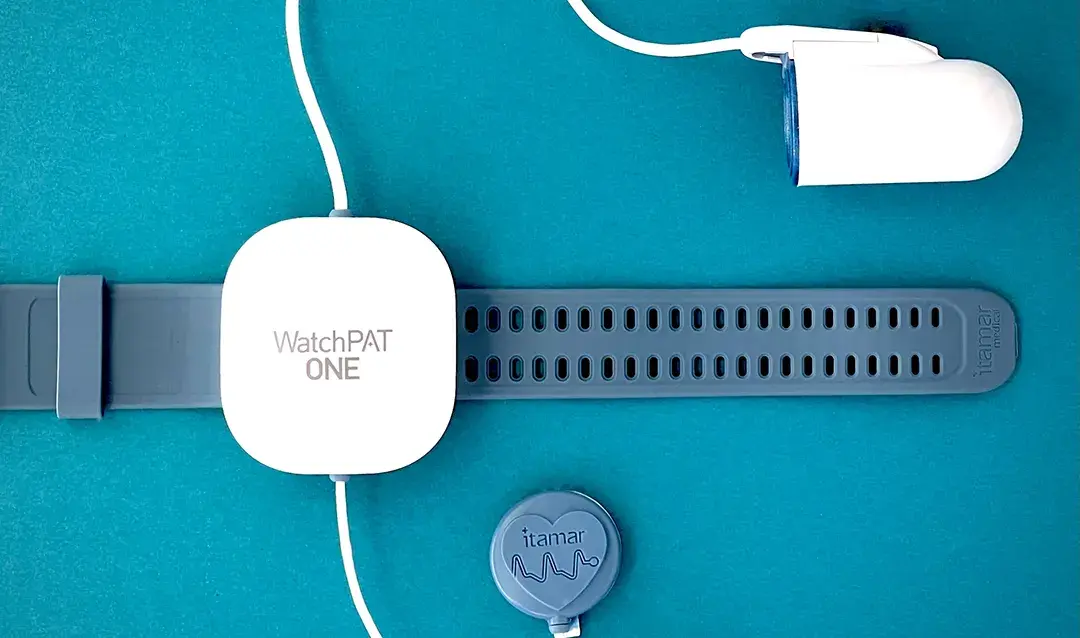Sleep Apnea Oral Appliances: Do They Work Just As Well As CPAP Machines?
Ultimately, the device you’ll actually use is best
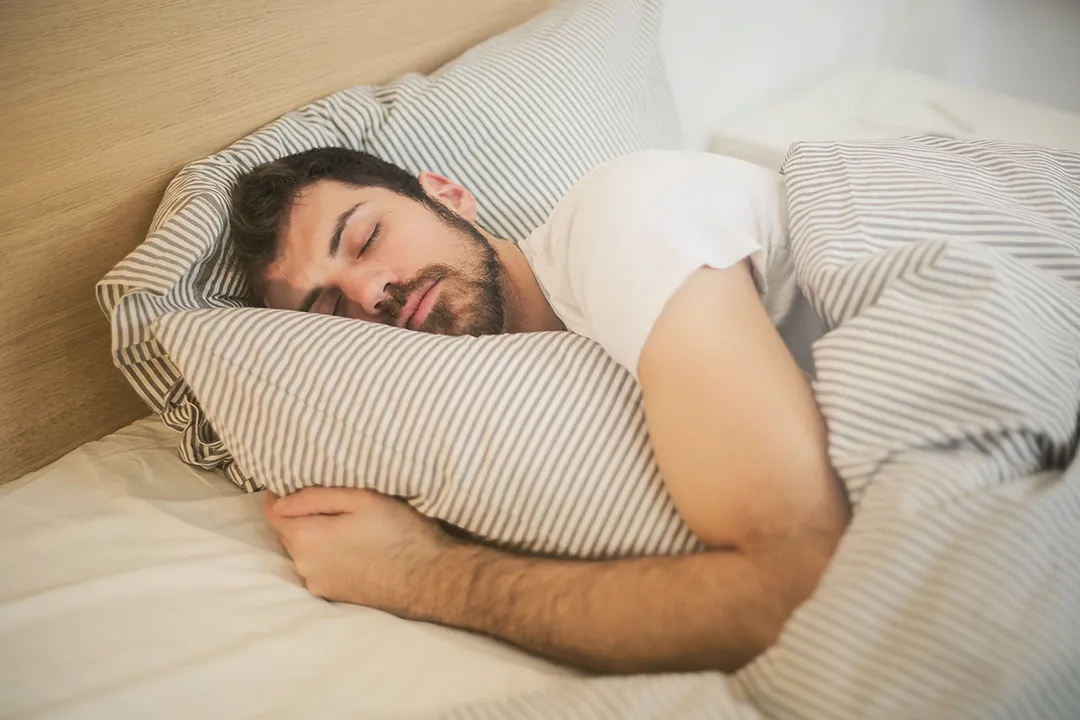
If you’re only familiar with one thing about sleep apnea, it’s probably the continuous positive airway pressure (CPAP) machine. This device might look like Darth Vader’s mask, but it’s actually one of the good guys since it helps people breathe while they sleep. This is important for people who have sleep apnea, a sleep disorder that causes people’s airways to get blocked repeatedly through the night.
While CPAP machines are very effective at treating sleep apnea, many people find the idea of wearing one pretty off-putting — after all, nobody wants to grow up to be Darth Vader. Fortunately, there are other options on the market that are smaller, easier, and can be way more appealing.
“Your options also include an oral appliance for sleep apnea, which is similar to a mouth guard or retainer, and might work just as well for you,” says Jagdeep Bijwadia, M.D. If you have sleep apnea, you’re going to need to find the solution that works best for you. There are a lot of factors to consider, including your unique physiology, the severity of your sleep apnea, and your lifestyle.
How do sleep apnea oral appliances work?
The CPAP machine basically creates a splint out of air. It filters and pressurizes the air around you, creating a gentle stream that flows through a mask that covers your nose and mouth. This constant, steady flow gently pushes your airway outwards so it can’t collapse.
Another popular option is a custom fabricated oral appliance, known as a Mandibular Advancement Device. It looks like a mouthguard, and it works by keeping your lower jaw in a slightly forward position while you sleep. This prevents your tongue from falling backwards, which keeps your airway open.
Reducing your AHI score
For decades, the CPAP was considered the gold standard in sleep apnea care, but innovations in oral appliances have made them a better treatment option for many people. “Oral appliances are very good,” says Christopher Lettieri, M.D. “They can lower many people’s Apnea-Hypopnea Index (AHI) score so it’s at a healthy level.”
The Apnea-Hypopnea Index
AHI Score in Adults | Severity Level of OSA |
|---|---|
5-14 | Mild |
15-30 | Moderate |
30 or higher | Severe |
The AHI scale runs from 5-30; the higher the score, the worse your sleep apnea is.
The AHI measures how many hypopneas and apneas you experience every night. A “hypopnea” is a 10-second period of breathing so shallow that you aren’t getting enough oxygen, while an “apnea” is a 10-second period during which your breathing completely stops. As you might imagine, both of these are pretty terrible for your brain and heart health, so you want to minimize them.
Both oral appliances and CPAP machines can often reduce your hypopneas and apneas so much that you’re not even showing up on the scale any more — you’re just sleeping normally. This happens when you reach a score of four or below. For some people who have severe obstructive sleep apnea or contributing physiological factors, a CPAP machine may help keep this score lower than an oral appliance can, but for most people, both are great options with equal results.
Consider your lifestyle and travel schedule
If you’re someone who travels a lot, a CPAP is much more of a hassle than an oral appliance. “I have sleep apnea, and I’ve brought oral appliances to five continents with me,” says Dr. Lettieri. “I’ve also brought a CPAP to five continents, and let me tell you, although they're both technically portable, it's a lot easier to move around with an oral appliance.”
Comfort is also a key factor to consider. “Patients who have oral appliances tend to wear them all night long, whereas patients who use CPAP machines sometimes find them uncomfortable, which means they end up taking their masks off later in the night,” says Dr. Bijwadia. “When that happens, they end up missing out on the benefit of their device at the most important part of the sleep cycle.”
So even though the oral appliance may not technically control moderate or severe sleep apnea as well as a CPAP can, the device you’ll actually use will be better for your health than a tool you’re tempted to neglect — or rip off your face at 4 a.m.
Both devices require some routine care
The CPAP machine requires a five-minute daily cleaning and a weekly scrub down. You don’t need expensive sanitizers or tools: plain soap and water work great. Every day, the mask, tubing, and connectors should be washed and allowed to dry before you reconnect them. On a weekly basis, you’ll also need to clean out the water chamber, and some of these machines have filters that need to be rinsed, while others have disposable filters that need to be replaced.
The oral appliance also requires a daily and weekly clean, although it’s less intensive. After you’re finished brushing your teeth in the morning, you can brush the oral appliance with its own soft-bristled toothbrush and either toothpaste or a mild soap. Once a week, you’ll want to give it a five-minute soak in a denture cleaner, which you can find at any drugstore.
So is a sleep apnea oral appliance just as good as a CPAP machine?
If you’re eligible for an oral appliance, it can produce results that are equivalent to a CPAP, and many people find it to be a better experience. “This is why we have to individualize treatment,” says Dr. Lettieri. “I might be better served with a CPAP, while you might do better with an oral appliance. A person who does a lot of camping or stays over at someone else’s place a lot? You can always bring your oral appliance with you, but it's going to be hard to lug that CPAP around.”
Ultimately, when considering a treatment option, it’s important to consider your life as a whole and think about which solution you’re more likely to actually stick with in the long run. The device that you’re really willing to use on a nightly basis is always going to be better for you than a device that’s technically more efficient but just ends up gathering dust in the corner of your bedroom.
Pinto VL, Sharma S. Continuous Positive Airway Pressure. In: StatPearls. Treasure Island (FL): StatPearls Publishing; July 24, 2023.
Cuccia AM, Caradonna C. Mandibular advancement devices: indications and predictors of treatment outcome. A review. Minerva Stomatol. 2007;56(9):427-443.
Mbata G, Chukwuka J. Obstructive sleep apnea hypopnea syndrome. Ann Med Health Sci Res. 2012;2(1):74-77. doi:10.4103/2141-9248.96943
